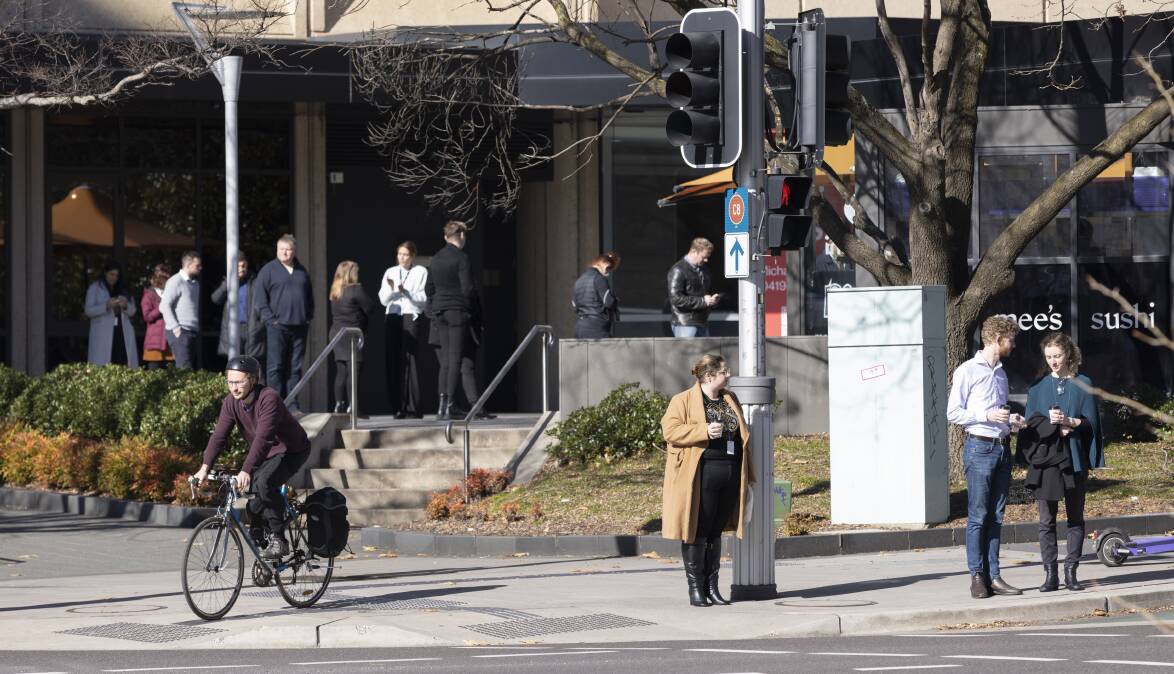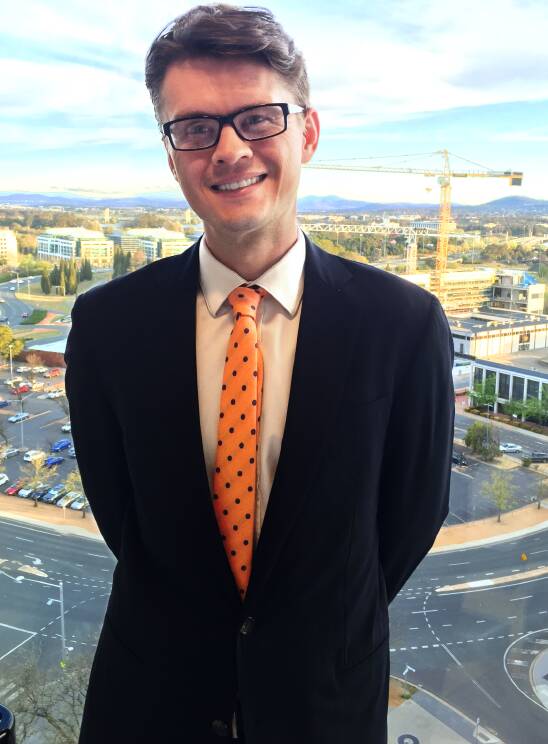
Migration agent Ben Watt is clear and blunt about one of the reasons for Canberra's growing population: migration policy means that people who are going to contribute to the city get to stay - and those who won't don't.
The federal government sets the rules for immigration but allows each state or territory a lot of leeway in administering its particular quota of in-comers.
Unlike other places, the authorities in the ACT seek evidence of a commitment to Canberra before they grant a permanent right to stay.
"It's the excellent and fair way in which the ACT government administers the program," Mr Watt of Visa Envoy said.
Potential settlers are asked about their ties to the region before the permanent visa is granted in a ranked, points-based system - do they have a partner in Canberra? How long have they lived there? Do they own a home or business in Canberra? The more positive answers there are, the more points to the applicant - and the greater the chance of a permanent visa.
"The program is to give visas to people who love and contribute to Canberra but they measure that love. Do you have a job here?
"They won't give anything to people who are unemployed. They don't want bums. It's a competitive system and the government is dealing with a high number of applicants"
Canberra is helped because for immigration purposes it's designated as a regional area. The national policy is to diversify migration from Sydney, Melbourne and Brisbane, and this dispersal of migrant groups is sought by giving priority to "regional areas", including Canberra.

Immigration is not easy. There are high hurdles to cross. Apart from having family ties, people can get visas for a string of economic reasons like being sponsored by an employer or bringing particular skills.
There are longer-term visas for people like surgeons or engineers with the rarest skills, and shorter-term visas for others with good and useful skills, like cooks or site supervisors.
But the switch from a temporary visa to a permanent one in the ACT depends on how much beyond the mere economic the applicant may contribute.
There is a question, though, beyond that: why do people stay once they've been given the permanent right to live in Australia?
People who come to Canberra do tend to stay, Mr Watt says. It's not just about using the city as an easy gateway to Sydney or Melbourne or Brisbane.
As evidence, he says that 95 per cent of the citizenship ceremonies he attends five years after someone has got a permanent visa are in Canberra. They get the visa and stay in the city rather than moving elsewhere.
That is echoed by removalist Ian Walter of Virgil Removals. "A lot of people who come say they feel it's a small city but a close city. It has a lot of the good features that a city has but also the community of a country town.
"Go to Sydney and nobody gives a stuff. You could fall over in the street and people would walk past you."
There are more concrete reasons for Canberra's growing population (454,000 compared with 397,000 in the 2016 census).
"There's really good job security. There's a steady income here," Mr Walter whose company does 50 to 60 removals a week said.
He also thinks that Canberra is "quite an entrepreneurial kind of place": "People are coming from Sydney and starting a business."
The universities attract a lot of people, the migration agent Ben Watt said.
The University of Canberra is, he thinks, a "reasonably priced option". It has partnerships with colleges in China, Singapore, Bhutan and Vietnam, and those links make movement to Australia more likely.
"Then you've got the ANU which is one of the best universities in the world so you've got all those academics coming here.
"And then you've got diplomats and their families coming."
The upshot is pleasant, he thinks: "You've got lots of lovely residents. There's a few really world class things in Canberra. It's safe. It's got good schools."
We've made it a whole lot easier for you to have your say. Our new comment platform requires only one log-in to access articles and to join the discussion on The Canberra Times website. Find out how to register so you can enjoy civil, friendly and engaging discussions. See our moderation policy here.







